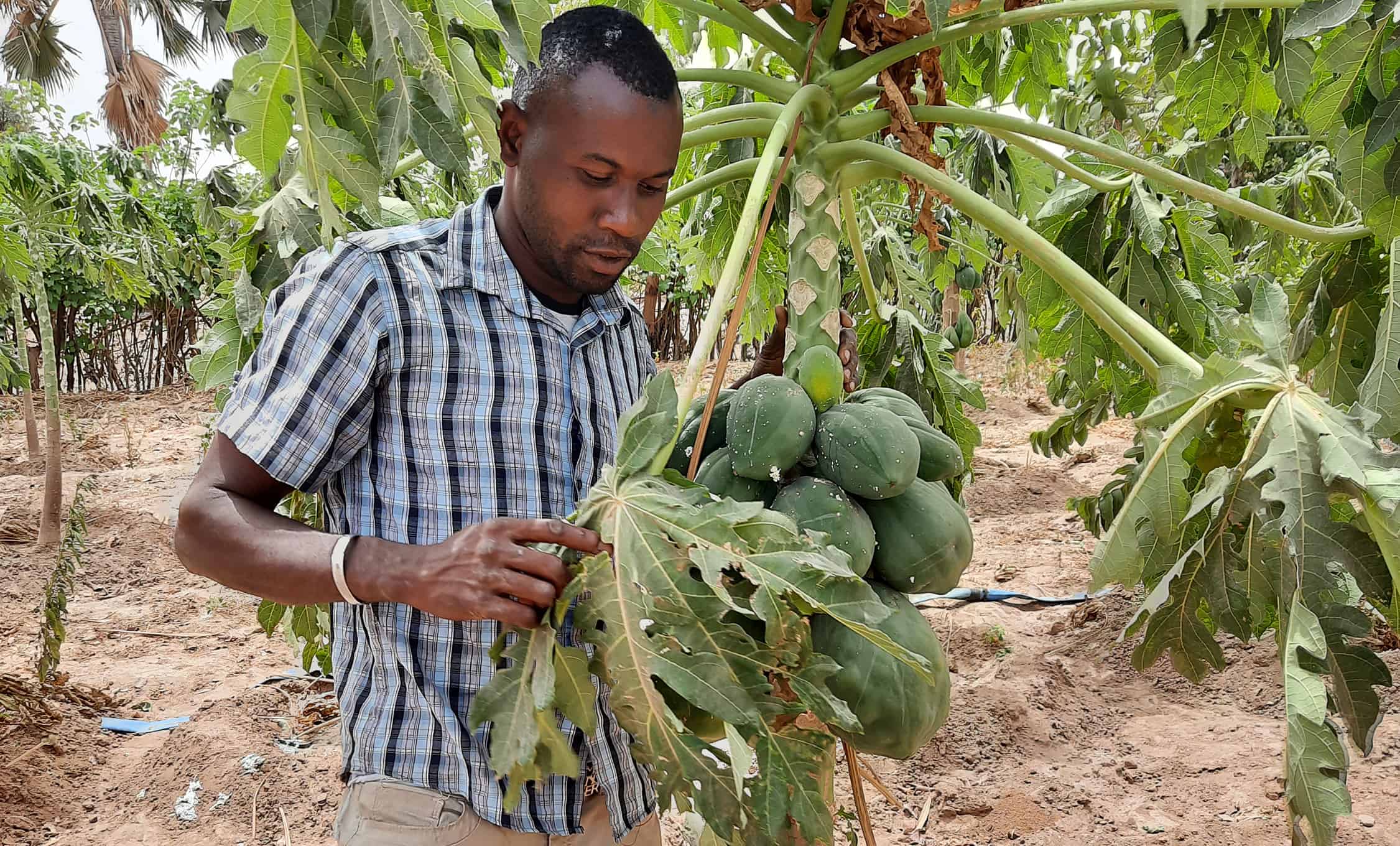“I am preparing to make a big plantation of fruit trees with vegetables,” says Malian farmer Falaye Keita.
Falaye began his agroforestry training with nonprofit Trees for the Future last year.
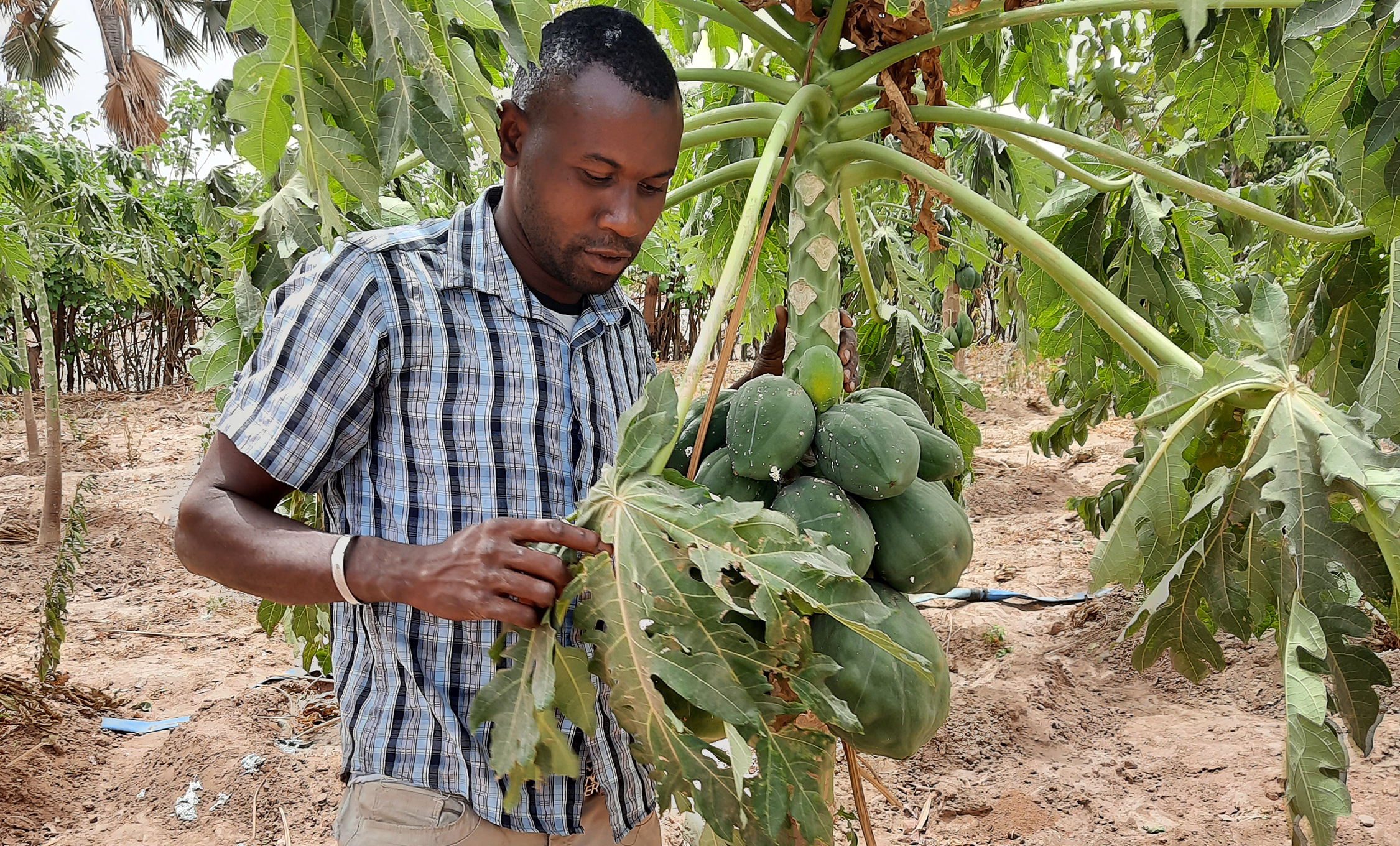
The Forest Garden Approach
Trees for the Future (TREES) is a regenerative agriculture nonprofit that teaches farmers to diversify their crops and protect their land through an agroforestry approach called the Forest Garden. Instead of clearing their land to plant repeating rows of one resource-draining crop, farmers plant dozens of species and thousands of trees to restore their land and mitigate the effects of climate change.
“When you have high temperatures and extended dry periods like we see in Mali, it’s crucial that farmers first protect their land by planting a perimeter of fast-growing trees that serve as a living fence,” explains Trees for the Future Director of Programs Brandy Lellou.
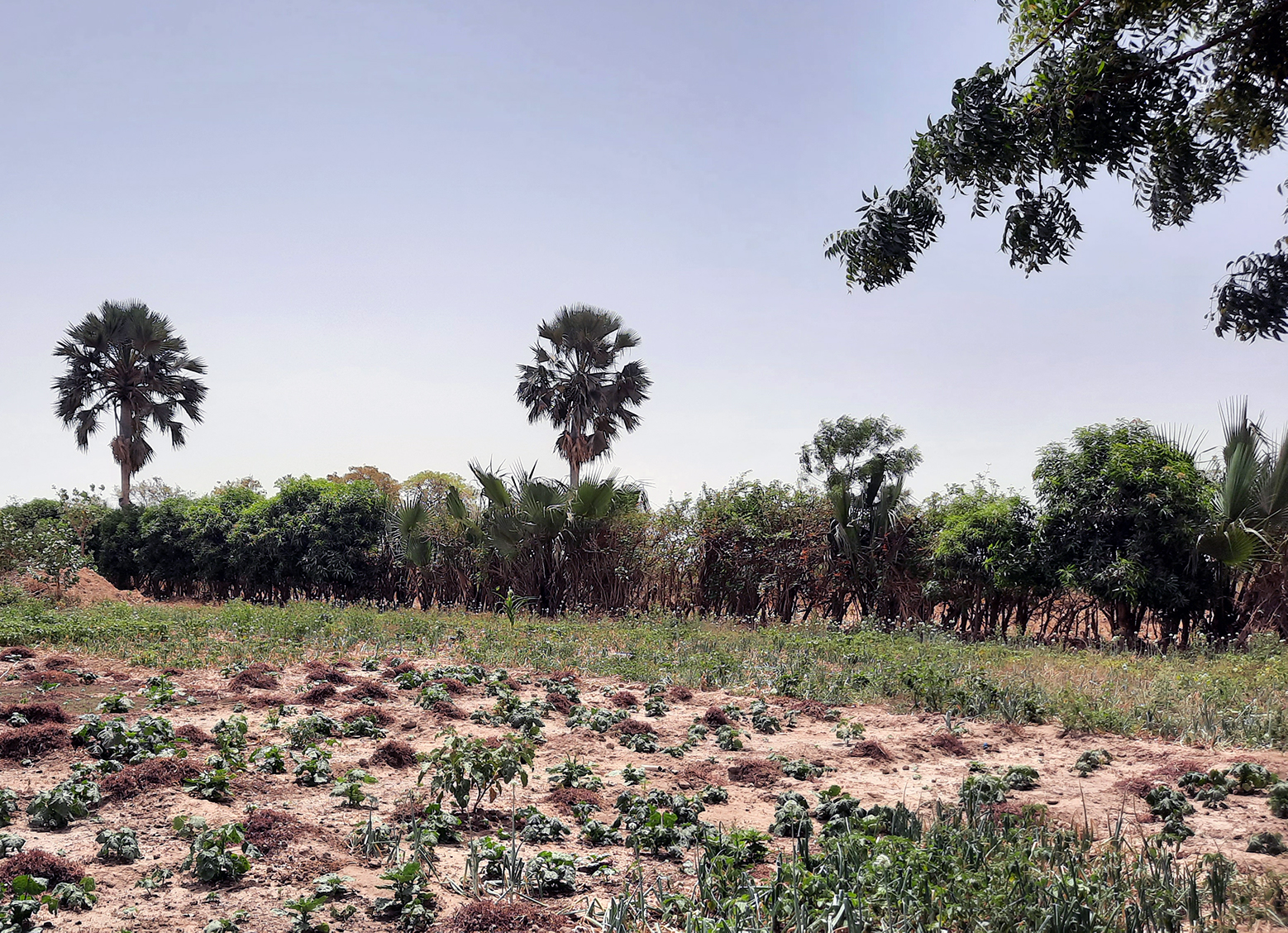
“This living fence protects the field from grazing animals and the relentless wind. Within this protection a micro-climate begins to develop. Living fences help lower temperatures, retain moisture and humidity, and begin restoring soil,” Lellou says. “These conditions ensure farmers can grow a multitude of vegetables and crops. This increases their resilience to climate change impacts and improving food security and income generation opportunities.”
Reaching Farmers in Mali
TREES has worked around the world and in Mali’s neighboring Senegal for decades. In 2020, the team started a handful of pilot projects in Mali to see if a full-scale project would be effective and well-received.
27-year-old farmer and father Oumar Keita was one of the 50 farmers to join TREES’ pilot project in Koulikoro, Mali.
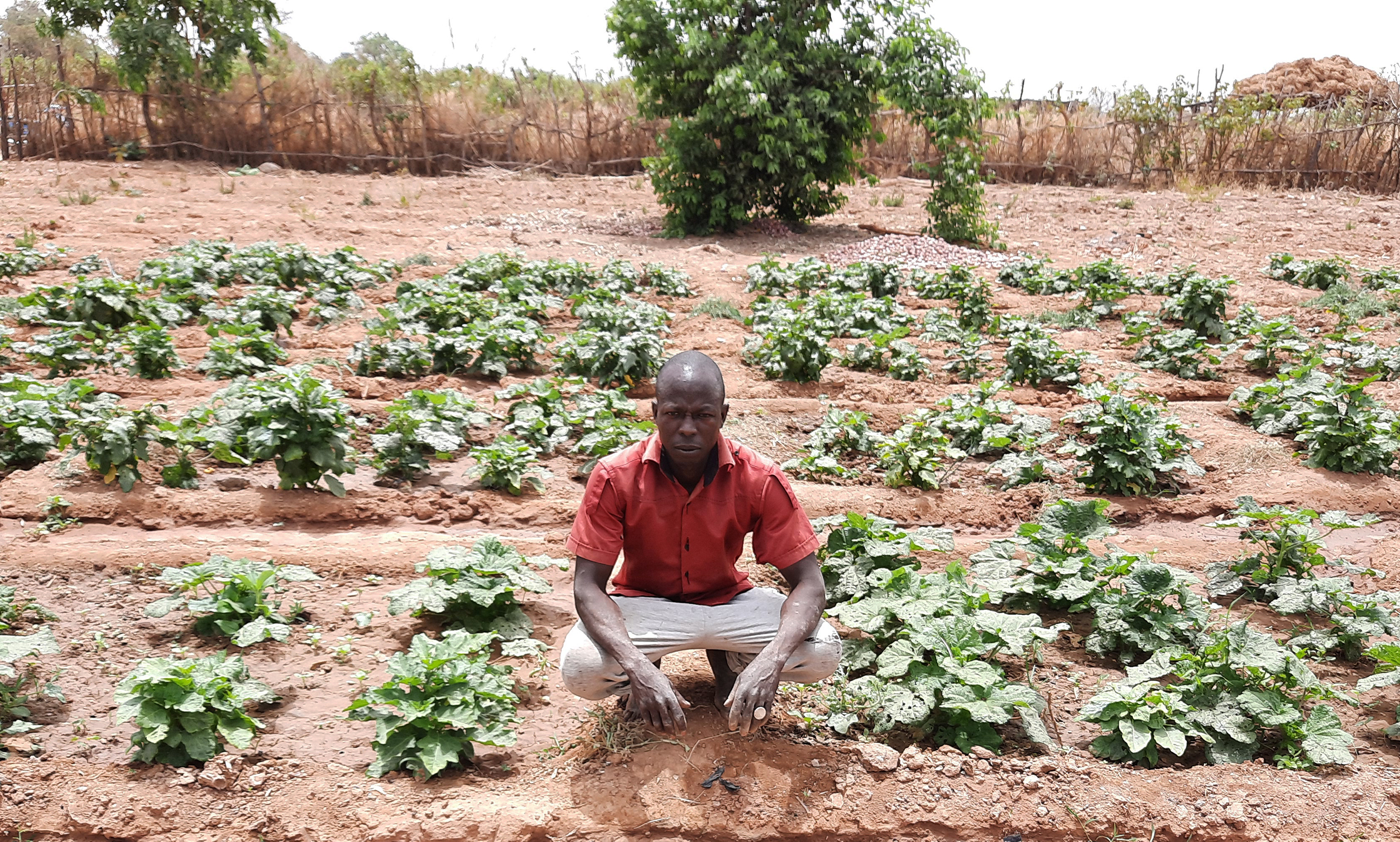
After just one year of training, Oumar has a living fence growing around his 1.5-hectare Forest Garden. He’s also growing tomatoes and peppers to eat and sell.
“Farmers like Oumar and Falaye are proving how effective the Forest Garden Approach is, even in a challenging climate like Mali,” Lellou says.
TREES launched two full-scale Forest Garden projects in Mali at the beginning of 2021 – one in Koulikoro and one in Kayes. Both pilot project farmers and new farmers are receiving training from TREES staff. With the August rains, Farmer groups are now planting the trees they’ve been growing in nurseries.
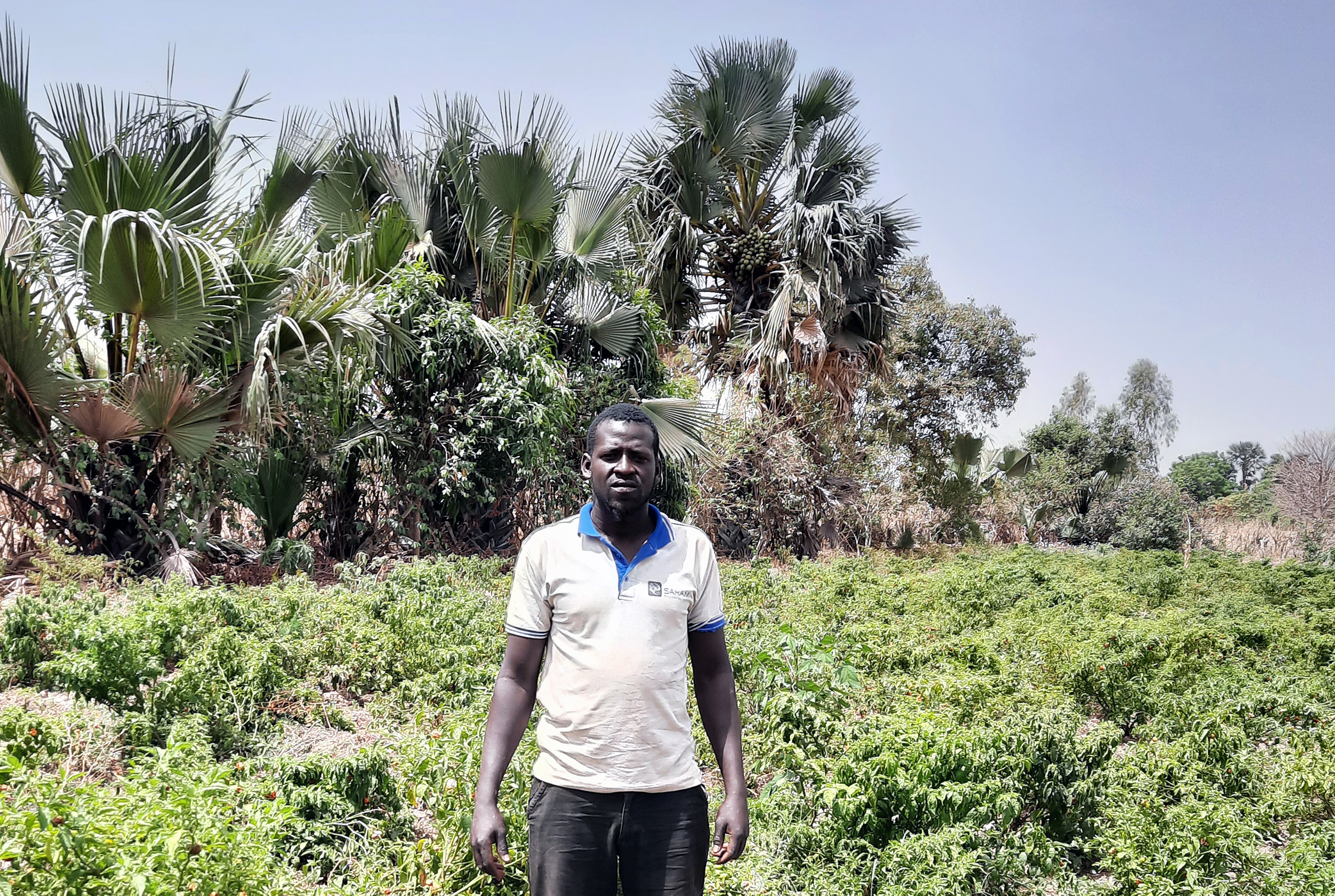
TREES expects to plant more than 750,000 trees in Mali this year thanks largely in part to funding from the Arbor Day Foundation and the Turing Foundation. The Forest Garden projects in Mali, as well as Senegal and Chad, are all part of the expanded vision of the Great Green Wall. Managed by farmers, for farmers, Forest Gardens planted over the next decade will effectively protect hundreds of thousands of acres of land for generations to come.
Learn more about TREES work in the Great Green Wall. Help the team provide training and resources to farmers like Falaye, Oumar, and Balla. Donate today.
